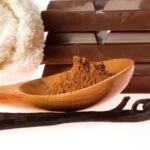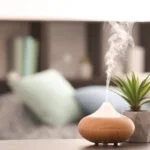Peppermint aromatherapy is a popular holistic practice that involves using peppermint essential oil to promote relaxation and overall well-being. The use of peppermint for its therapeutic effects dates back centuries, with its invigorating and refreshing scent being known for its calming properties. This article explores whether peppermint aromatherapy is truly relaxing, delving into the science behind this ancient practice.
Aromatherapy, including peppermint essential oil, is believed to work by stimulating smell receptors in the nose, which then send messages through the nervous system to the limbic system – the part of the brain that controls emotions. This can result in a calming effect on the mind and body, making it a popular tool for relaxation and stress relief.
Peppermint essential oil is particularly sought after for its cooling sensation and uplifting aroma that can help ease tension and promote a sense of calm.
Many individuals have reported experiencing various benefits from using peppermint aromatherapy for relaxation. From reducing headaches and muscle tension to alleviating symptoms of anxiety and promoting better sleep quality, peppermint essential oil has been praised for its versatile healing properties. Whether it’s through diffusion, massage oils, or DIY home remedies, peppermint aromatherapy offers multiple ways to incorporate relaxation into daily routines.
The Science Behind Aromatherapy and Its Relaxing Effects
Peppermint aromatherapy has gained popularity for its potential relaxing effects, but what exactly is the science behind it? Aromatherapy, in general, involves the use of essential oils extracted from plants to promote physical and psychological well-being. When it comes to peppermint essential oil, its invigorating and refreshing scent can also have a calming and soothing impact on the mind and body.
The scent of peppermint essential oil is known to stimulate the olfactory system, which is connected to the part of the brain that regulates emotions and memories. This stimulation can trigger a sense of relaxation and reduce feelings of stress and anxiety. Additionally, peppermint essential oil contains menthol, a compound known for its cooling properties that can help relieve tension headaches and muscle aches when used topically or aromatically.
Here are some key scientific reasons why peppermint aromatherapy can be relaxing:
- The aroma of peppermint essential oil can activate brain receptors that regulate mood and emotions.
- Peppermint essential oil may help improve mental clarity and focus, reducing feelings of overwhelm and promoting relaxation.
- The cooling sensation from menthol in peppermint oil can provide a refreshing experience that calms the mind and body.
Overall, incorporating peppermint aromatherapy into your relaxation routine can offer not only a pleasant sensory experience but also genuine benefits for your mental well-being. Whether you choose to diffuse the oil, apply it during a massage, or include it in your skincare routine, the calming effects of peppermint aromatherapy are worth exploring for anyone looking to unwind and de-stress naturally.
Benefits of Peppermint Essential Oil for Relaxation
Peppermint essential oil is not only known for its invigorating and refreshing scent, but it also possesses numerous benefits for relaxation. When used in aromatherapy, peppermint essential oil can help calm the mind and promote a sense of peace and tranquility. The cooling and soothing properties of peppermint oil make it an excellent choice for those looking to unwind after a long day or reduce feelings of stress and tension.
One of the key reasons why peppermint essential oil is effective for relaxation is its ability to support mental clarity and focus. The aroma of peppermint has been shown to stimulate cognitive function and improve alertness, helping individuals feel more present and centered. This can be particularly beneficial during moments of overwhelm or when needing a mental boost to relax and recharge.
In addition to its mental benefits, peppermint essential oil also has physical effects that contribute to relaxation. Peppermint oil is known for its muscle-relaxing properties, making it an ideal choice for alleviating physical tension and discomfort.
Whether used in massage oils or through inhalation, the soothing effects of peppermint can help release tight muscles and promote overall relaxation throughout the body. Overall, incorporating peppermint essential oil into your relaxation routine can provide a holistic approach to calming both the mind and body.
How Peppermint Aromatherapy Can Reduce Stress and Anxiety
Peppermint aromatherapy has been found to be an effective natural remedy for reducing stress and anxiety. The invigorating scent of peppermint essential oil can help calm the mind, promote relaxation, and alleviate feelings of tension. When inhaled, the aromatic compounds in peppermint can trigger a response in the brain that helps to reduce stress levels and promote a sense of well-being.
Research has shown that inhaling peppermint essential oil can have a direct impact on the body’s physiological responses to stress. The menthol component in peppermint oil acts as a muscle relaxant, helping to soothe both physical and mental tension. In addition, the refreshing aroma of peppermint can also aid in improving focus and concentration, making it a great choice for those looking to unwind after a long day or during moments of high stress.
One popular way to experience the stress-relieving benefits of peppermint aromatherapy is through inhalation. This can be done by adding a few drops of peppermint essential oil to a diffuser or inhaling the scent directly from the bottle.
Another effective method is to mix peppermint oil with a carrier oil and apply it to pulse points or use it during a relaxing massage session. Regardless of how it is used, peppermint aromatherapy is known for its calming and soothing effects on both the mind and body.
| Peppermint Aromatherapy Benefits | Ways Peppermint Aromatherapy Can Be Applied |
|---|---|
| Reduces stress and anxiety | Diffusing with a diffuser or inhaling directly |
| Promotes relaxation | Mixing with carrier oils for massage or applying on pulse points |
| Soothes physical and mental tension | Enhances focus and concentration |
Top Ways to Use Peppermint Aromatherapy at Home for Relaxation
Peppermint aromatherapy is a widely used practice for relaxation and stress relief. One of the top ways to benefit from peppermint essential oil at home is through inhalation. The invigorating aroma of peppermint can help clear the mind and promote feelings of calmness and relaxation. You can simply add a few drops of peppermint oil to a diffuser or inhale directly from the bottle for quick relief.
Aromatherapy Bath
Another excellent way to incorporate peppermint aromatherapy into your relaxation routine is by adding a few drops of peppermint essential oil to your bath. The warm water will help release the soothing scent of peppermint, promoting a sense of tranquility and relaxation. This method is particularly beneficial after a long, stressful day, as it can help ease tension in both the mind and body.
DIY Massage Oil
Creating your own massage oil with peppermint essential oil can be a luxurious way to unwind and relax at home. Simply mix a carrier oil, such as coconut or jojoba oil, with a few drops of peppermint essential oil and gently massage it into your skin. The cooling sensation of peppermint combined with the therapeutic benefits of massage can help alleviate muscle tension and promote overall relaxation.
Aromatherapy Techniques
Peppermint aromatherapy offers a variety of techniques for relaxation, making it a versatile and effective option for those seeking to unwind and de-stress. Here are some popular ways to use peppermint essential oil for aromatherapy at home:
- Diffusing: One of the most common methods of using peppermint essential oil for aromatherapy is through diffusing. Simply add a few drops of peppermint oil to a diffuser filled with water and let the refreshing scent fill the room. This method is great for creating a calming atmosphere in your living space.
- Massage: Another popular technique is using peppermint essential oil during massages. Mix a few drops of peppermint oil with a carrier oil like coconut or almond oil, and gently massage it onto the skin. The cooling sensation of peppermint can help relax muscles and provide relief from tension.
- Inhalation: Inhaling peppermint essential oil directly from the bottle or by adding a few drops to a bowl of steaming hot water is another effective way to experience its relaxing benefits. The invigorating scent can help clear your mind and promote feelings of calmness.
These techniques can easily be incorporated into your daily routine to enjoy the soothing effects of peppermint aromatherapy. Whether you prefer diffusing the oil in your home, using it during massages, or inhaling it for quick relaxation, there are various ways to experience the calming properties of peppermint essential oil.
Remember to always dilute peppermint essential oil with a carrier oil before applying it onto the skin to prevent any irritation. Additionally, if you have any specific health concerns or conditions, consult with a healthcare professional before using peppermint aromatherapy as part of your relaxation routine. By following safety precautions and tips, you can fully enjoy the benefits of this natural remedy for stress relief and relaxation.
Personal Experiences With Peppermint Aromatherapy and Relaxation
Relaxing Effects of Peppermint Aromatherapy
Many individuals have reported experiencing a sense of relaxation and calmness when using peppermint aromatherapy. The invigorating scent of peppermint essential oil can help alleviate feelings of stress and anxiety, promoting a soothing atmosphere in both the mind and body. The cooling and refreshing properties of peppermint create a sensation that is not only pleasant but also uplifting, making it an ideal choice for relaxation purposes.
Improved Mood and Mental Clarity
In addition to its relaxing effects, peppermint aromatherapy is also known to improve mood and enhance mental clarity. The energizing aroma of peppermint can help combat feelings of fatigue and boost cognitive function, allowing individuals to feel more focused and alert. This uplifted state of mind can contribute to overall feelings of well-being and relaxation, making peppermint essential oil a popular choice for those looking to unwind after a long day.
Enhanced Sleep Quality
Many people find that incorporating peppermint aromatherapy into their bedtime routine can lead to improved sleep quality. The calming properties of peppermint can help relax the mind and body, creating an optimal environment for restful sleep.
By diffusing peppermint essential oil in the bedroom or adding a few drops to a warm bath before bedtime, individuals may experience deeper, more rejuvenating sleep. This natural approach to relaxation is not only effective but also safe for regular use, providing a holistic solution for those seeking better sleep habits.
Safety Precautions and Tips for Using Peppermint Essential Oil for Aromatherapy
Peppermint aromatherapy is a popular choice for relaxation and stress relief due to its invigorating scent and cooling properties. However, it is essential to use peppermint essential oil with caution to ensure safety and maximize its benefits.
When using peppermint oil for aromatherapy, it is crucial to dilute it properly with a carrier oil, such as coconut or almond oil, to prevent skin irritation. A general rule of thumb is to use 1-2 drops of peppermint essential oil per teaspoon of carrier oil.
In addition to proper dilution, it is important to perform a patch test before using peppermint essential oil on a larger area of your skin. This helps determine if you have any sensitivities or allergies to the oil.
If you experience any redness, itching, or irritation after the patch test, avoid using peppermint oil for aromatherapy. It is always recommended to consult with a healthcare professional before using peppermint essential oil, especially if you are pregnant, nursing, or have underlying health conditions.
When diffusing peppermint essential oil for aromatherapy purposes, make sure the room is well-ventilated to prevent overwhelming the senses with the scent. It is also advisable to diffuse peppermint oil in short intervals rather than continuously for an extended period. This way, you can enjoy the benefits of peppermint aromatherapy without overexposure. By following these safety precautions and tips, you can experience the relaxing effects of peppermint aromatherapy safely and effectively.
| Safety Precautions | Tips for Peppermint Aromatherapy |
|---|---|
| Dilute peppermint essential oil with a carrier oil | Perform a patch test before use |
| Avoid using undiluted peppermint oil directly on skin | Consult with a healthcare professional before use |
| Diffuse in well-ventilated areas | Use short intervals when diffusing |
Conclusion
Peppermint aromatherapy has long been touted for its invigorating and refreshing scent, but does it truly have relaxing effects? The science behind aromatherapy suggests that the aromatic compounds in peppermint essential oil can indeed promote relaxation and reduce stress. Studies have shown that inhaling the scent of peppermint can help calm the mind and body, making it an excellent choice for those looking to unwind and de-stress.
One of the key benefits of peppermint essential oil for relaxation is its ability to alleviate anxiety. The soothing aroma of peppermint can help quiet the mind, ease tension, and promote a sense of calm. Whether used in a diffuser, added to a bath, or mixed with a carrier oil for massage, peppermint essential oil can be a valuable tool in managing stress and promoting relaxation.
Incorporating peppermint aromatherapy into your daily routine can have a significant impact on your overall well-being. Whether you choose to diffuse it in your home, add it to your skincare routine, or use it during meditation or yoga practices, the calming effects of peppermint essential oil are undeniable. So next time you’re feeling stressed or anxious, consider turning to peppermint aromatherapy as a natural and effective way to relax and unwind.
Frequently Asked Questions
Does the Smell of Peppermint Relax You?
The smell of peppermint is often associated with relaxation for many people. It has a refreshing and invigorating scent that can help reduce feelings of stress and promote a sense of calmness. The aroma of peppermint can also alleviate headaches and promote mental clarity.
What Does Peppermint Do in Aromatherapy?
In aromatherapy, peppermint oil is commonly used to boost energy levels, improve focus, and enhance cognitive performance. The invigorating scent of peppermint can help to stimulate the mind and increase alertness. Additionally, the cooling sensation of peppermint oil can aid in relieving muscle tension and soreness.
Is Peppermint Oil a Relaxant?
Peppermint oil is known for its relaxing properties due to its ability to alleviate muscle pain and tension. It contains menthol, which has a cooling effect on the skin when applied topically. This cooling sensation can help relax muscles and provide relief from discomfort, making peppermint oil a popular choice for massage therapy.

Are you looking for a natural way to improve your health and wellbeing?
If so, aromatherapy may be the answer for you.





